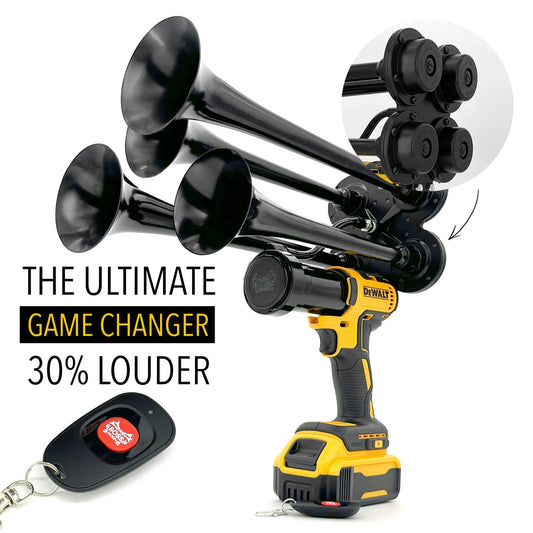In everyday life, we often find ourselves immersed in a world filled with captivating sounds that evoke various emotions within us. Whether it's the soothing melody of a favorite song, the realistic sound effects in a movie, or the voices that transport us into a different world through podcasts, sound plays an essential role in enhancing our experiences. The professionals responsible for creating these captivating sounds are masters of their craft, utilizing their skills and expertise to manipulate audio elements and bring them to life.
Sound-making, or the craft of audio engineering, holds a rich history that spans several decades. From the early days of radio broadcasts to the advent of film and television, sound makers have played a crucial role in revolutionizing the way we perceive audio. Initially, these professionals relied heavily on analog equipment to manipulate sound, meticulously adjusting knobs and dials to achieve the desired effects. However, with the rapid advancements in technology, sound-making has evolved into a complex and sophisticated art, integrating digital tools and software to produce seamless audio experiences.
Today, the significance of sound-making in various industries cannot be overstated. In the world of entertainment, sound makers are integral to the creation of immersive experiences that transport audiences into fantastical realms. They skillfully blend music, dialogue, and sound effects to bring life to characters and environments, making us laugh, cry, or feel a sense of awe. Moreover, sound makers are instrumental in the realm of advertising, using their expertise to craft compelling soundscapes that capture and hold the attention of consumers, enhancing the effectiveness of marketing campaigns.
An interesting aspect of sound-making is the psychological impact it has on individuals. Studies have shown that sound can greatly influence our moods, behaviors, and even our perception of a brand or product. When used strategically, sound has the power to evoke specific emotions and create lasting impressions. For example, soft and mellow melodies can evoke feelings of relaxation and tranquility, making them perfect for spa advertisements. On the other hand, upbeat and energetic soundtracks can create a sense of excitement and motivate individuals to take action, which is commonly used in commercials promoting fitness or adventure-related products.
In a world that is increasingly driven by compelling audio content, the role of sound makers continues to grow in importance. These professionals push the boundaries of technological capabilities, constantly seeking innovative ways to create immersive soundscapes. From developing unique sound effects to ensuring optimal audio quality, their work has a direct impact on how we experience various forms of media. Without their expertise, our favorite movies, songs, video games, and even live events would lack the depth and richness that sound brings to our lives.
What is the role of a sound maker in creating immersive experiences?
A sound maker is responsible for designing and producing various sounds and audio elements that enhance the overall experience in movies, video games, virtual reality, and other media. This includes creating unique sound effects, recording and editing dialogue and music, and manipulating audio to create a desired atmosphere or mood. The sound maker job is crucial in bringing life to visuals, adding depth and realism to a project, and captivating the audience by engaging multiple senses. In the following sections, we will delve into the detailed responsibilities, skills, and techniques involved in the sound maker job, as well as explore the impact of sound on different forms of media.
What is Sound Design?
Sound design is the process of creating and manipulating audio elements to enhance and complement a visual or interactive media experience. It is an essential component of various industries, including film, television, video games, live events, and theater. Sound designers use their artistic and technical skills to create a rich sonic environment that supports and enhances storytelling.
Roles and Responsibilities
Sound designers are responsible for a range of tasks that contribute to the overall soundscape of a production. These may include:
- Collaborating with directors, producers, and other members of the creative team to understand their vision and requirements.
- Creative sound design, including the creation and manipulation of sound effects, foley, ambience, and musical elements.
- Recording and editing dialogue, voiceovers, and vocals.
- Mixing and mastering audio to ensure a balanced and immersive experience for the audience.
- Working with specialized software and equipment to produce high-quality sound.
- Managing and organizing audio files and libraries.
- Collaborating with composers and musicians to integrate music into the overall sound design.
- Ensuring the technical compatibility and quality of sound across different platforms and playback systems.
Skills and Qualifications
A successful sound designer possesses a combination of creativity, technical proficiency, and industry knowledge. Some key skills and qualifications for this role include:
- Strong understanding of audio principles, including sound propagation, acoustics, and psychoacoustics.
- Proficiency in digital audio workstations (DAWs) such as Pro Tools, Logic Pro, or Ableton Live.
- Knowledge of industry-standard audio plugins and effects.
- Excellent aural and musical perception.
- Ability to work collaboratively in a fast-paced, creative environment.
- Attention to detail and organizational skills to manage large audio libraries.
- Understanding of narrative and storytelling techniques.
- Flexibility and adaptability to meet project deadlines and changing requirements.
Impact on Media and Entertainment Industries
Sound design plays a crucial role in enhancing the audience's emotional engagement and overall experience in various media and entertainment industries. For example:
- In film and television, sound design helps to create realistic and immersive environments, adds depth and dimension to storytelling, and enhances the impact of key moments and transitions.
- In video games, sound design contributes to the player's immersion, provides auditory feedback and cues, and helps build the game's atmosphere and narrative.
- In live events and theater, sound design ensures that the audience can hear and understand the performers and dialogue clearly, while also creating a dynamic and engaging sonic landscape.
Statistics
According to a survey conducted by the Bureau of Labor Statistics, the employment of sound engineers and sound designers is projected to grow by 8% from 2020 to 2030, which is faster than the average for all occupations. This growth is primarily driven by the increasing demand for high-quality audio in various forms of media and entertainment.
https://youtube.com/watch?v=RisL9H5sMiQ
Q: What does a sound maker do?
A sound maker is responsible for creating and manipulating sounds to enhance various forms of media, such as movies, video games, or music production. They utilize their technical skills and creative instincts to design and produce audio effects that engage and captivate audiences. By using innovative techniques, sound makers help to bring compelling stories to life through the power of sound.
Important information:
1. Sound makers create and manipulate sounds to enhance media.
2. They use both technical skills and creativity.
3. Sound makers play a crucial role in storytelling.
Q: What are the essential skills required for a sound maker?
To excel as a sound maker, a combination of technical expertise and creative abilities is essential. Proficiency in audio editing software, knowledge of sound design principles, and a strong understanding of different musical genres are all crucial skills.
Important information:
1. Proficiency in audio editing software is essential.
2. Understanding sound design principles is crucial.
3. Knowledge of different musical genres is necessary.
Q: How does a sound maker contribute to the overall quality of a movie?
A sound maker plays a pivotal role in enhancing the overall quality of a movie. Through skillful sound design, they create an immersive experience for audiences, heightening emotions and building suspense. By using various techniques, such as foley artistry, sound mixing, and synchronization, sound makers add layers of depth to the narrative, making it more engaging and realistic.
Important information:
1. Sound makers enhance the overall quality of a movie through sound design.
2. They create an immersive experience for audiences.
3. Sound makers use techniques like foley artistry and sound mixing.
Q: How does sound impact video game experiences?
Sound is a crucial element in video game experiences, and sound makers are instrumental in creating the audio landscape for gaming. They produce realistic sound effects, design immersive soundscapes, and compose dynamic music that adapts to the gameplay. By utilizing their skills, sound makers transport players into virtual worlds, heighten the excitement, and evoke emotional responses, enhancing the overall gaming experience.
Important information:
1. Sound makers produce realistic sound effects for video games.
2. They design immersive soundscapes.
3. Sound makers compose dynamic music that adapts to gameplay.
Q: How does a sound maker contribute to the success of music production?
Sound makers play a vital role in the success of music production. They possess a keen ear for detail and are responsible for recording, editing, and mixing various audio elements to achieve the desired sound. Whether it is producing catchy beats, enhancing vocals, or creating unique sound textures, sound makers contribute to the overall sonic identity of a track, giving it depth and texture that resonate with listeners.
Important information:
1. Sound makers record, edit, and mix audio elements in music production.
2. They contribute to the overall sonic identity of a track.
3. Sound makers create unique sound textures in music production.
In conclusion, a sound maker is a skilled professional who brings stories to life through the power of sound. They contribute to the success of various media forms, such as movies, video games, and music production, by using their technical expertise and creative instincts. Whether it is enhancing the overall quality of a movie, adding depth to video game experiences, or shaping the sonic identity of a track, sound makers play a crucial role in captivating and engaging audiences.
Conclusion
In conclusion, the sound maker job is an exciting and creative profession that involves producing sounds and music for various industries. It requires a combination of technical skills, creativity, and a deep understanding of the impact of sound on the audience. Sound makers play a crucial role in movies, video games, advertisements, and music production. They collaborate with directors, producers, and artists to create immersive audio experiences that enhance the overall quality of the product. With the advancement in technology, sound makers are now equipped with sophisticated tools and software to manipulate and generate sounds. This profession offers a plethora of opportunities for individuals passionate about audio engineering and music production. Whether it's designing unique sound effects, composing background scores, or mixing tracks, sound makers contribute significantly to the success of various forms of entertainment. If you have a love for sound and an ear for detail, a career as a sound maker can be incredibly rewarding. Explore your creativity, hone your skills, and embark on an exciting journey in the world of sound making.














